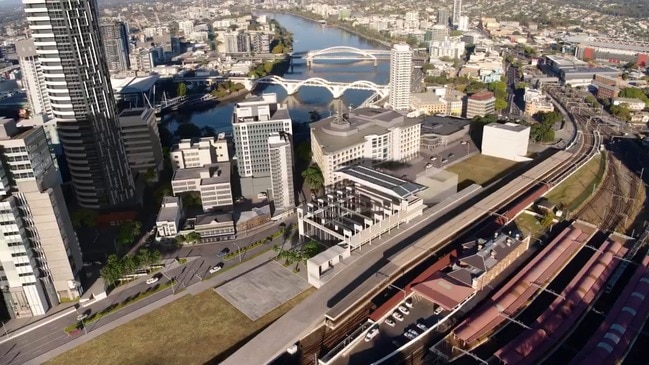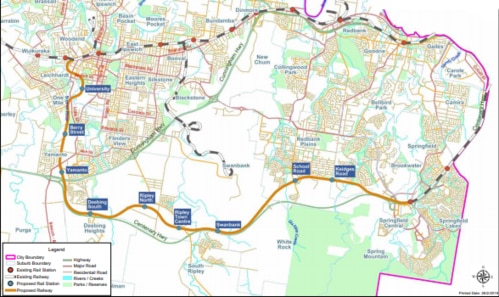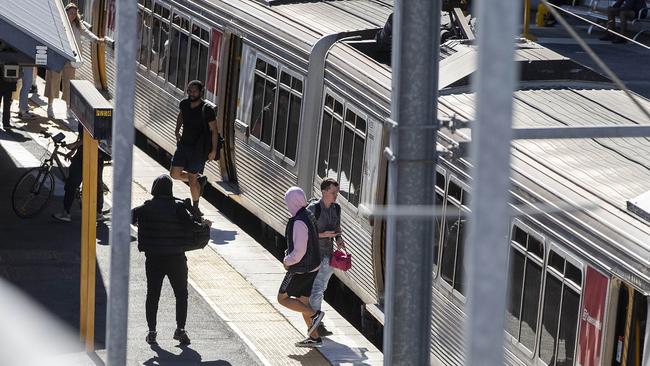Ipswich City Council to push for study into Springfield Central to Ipswich rail line
An area expected to bustle with an extra 133,800 people by 2036 is yet another step closer to receiving a major infrastructure project linking it directly to two major CBDs.

QLD News
Don't miss out on the headlines from QLD News. Followed categories will be added to My News.
Plans to fast-track a new rail line linking booming communities to Brisbane’s west have received a new push by Ipswich City Council amid warnings local roads will “fail.”
The much anticipated 25-kilometre extension to the Springfield Line would service the growing Ripley community before linking back to Ipswich.
Why Roma Street, Fortitude Valley stations have become mazes
The projects set to transform Brisbane by 2025
Now Ipswich City Council is urging both the State and Federal Government to fund a business case into the project, hoping to convince both levels to turbocharge its construction.
It comes as the Ripley Valley community is expected to house up to 133,800 new residents by 2036.
“The Ipswich Central to Springfield Central Public Transport Corridor is vital infrastructure of national significance and we cannot afford to delay its progression any further,” Ipswich mayor Teresa Harding said.

“If the project does not proceed, excessive congestion will cost in excess of $1 billion per annum and the regional road network will fail by 2031,” Ms Harding said.
The Ipswich to Springfield Central business case will cost $2.5 million.
Local federal MP Shayne Neumann said the project would require co-operation from all sectors.
“There needs to be greater Government investment on infrastructure projects like this one for the purposes of job creation and economic development,” Mr Neumann said.

One of the region’s largest developers, Sekisui House, described the project as “transformative, city-shaping infrastructure.”
“Without the rail, you just end up with a sprawling suburb instead of what was planned — a pattern of unique settlements that drive economic opportunities for the people who live in the area and the businesses that operate here too,” Australia project director Taku Hashimoto said.

